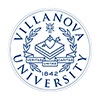Villanova University is a private Catholic university located in the northwest suburbs of Philadelphia, Pennsylvania, USA. The following is a detailed introduction to the school:
History
In October 1841, two priests from St. Augustine's Church bought 200 acres of land in Radnor, northwest of Philadelphia, determined to build a school. In 1842, the school was officially established and was originally named "Augustine College in Villanova".
The school experienced many twists and turns in its development, such as being forced to close due to local riots in Philadelphia in 1844, and being closed again in 1857 due to personnel and financial problems, until it reopened in 1865 after the end of the American Civil War.
In the late 1890s, the school began its first large-scale development. In 1905, Villanova's Institute of Technology was established; in 1922, the School of Business was established; in 1953, the School of Nursing and the School of Law were established.
In the early 20th century, the school was a boys' school. In 1953, the School of Nursing began to enroll full-time female students. In 1958, the School of Engineering also began to enroll female students. In 1968, it became a fully coeducational school.
School ranking
In 2024, the "U.S. News & World Report" ranked 67th in the best universities in the United States.
The School of Business ranked first in Bloomberg Businessweek in 2016.
The School of Engineering has been ranked in the top ten in the United States for many years.
The School of Nursing ranked fourth in the United States in Niche 2019 Best Colleges for Nursing.
Department settings
College of Arts and Sciences: It is the earliest college established in Villanova. It was founded in 1842 and offers majors in many fields including African studies, applied statistics, Arabic and Islamic studies, biology, chemistry, computer science, economics, English, history, philosophy, psychology, sociology, etc.
Business School: Founded in 1922, undergraduate majors include accounting, business administration, finance, international business cooperation, management, management information systems, marketing, etc.; graduate majors include full-time MBA, professional MBA, accounting and professional consulting services, technology management, finance, EMBA, etc.
School of Engineering: Founded in 1905, it offers undergraduate, master's and doctoral degrees in chemical engineering, civil engineering, computer engineering, electrical engineering, mechanical engineering, transportation engineering, water resources and environmental engineering, and also has interdisciplinary post-doctoral courses.
School of Nursing: Founded in 1953, it offers bachelor's, master's and doctoral degrees in nursing.
School of Law: Founded in 1953, it awards doctoral degrees in law and has doctoral degrees in law and psychology.
Faculty
Villanova University has a highly qualified faculty with a teacher-student ratio of about 1:10. 43% of classes have fewer than 20 students, so teachers can pay full attention to the learning and growth of each student. The school's faculty also has significant achievements in academic research, publishing a total of 3,250 papers from 2018 to 2022, of which 59 papers were cited in the top 25% of journals and 15 were in the top 5% of journals.
Campus Life
Student Organizations and Activities: The school has more than 280 student organizations, such as the Blue Key Society, which organizes admissions visits and freshman activities. In addition, the school is the host of the world's largest student-run Special Olympics event. Students provide about 250,000 hours of service to the community each year and can participate in about two dozen fraternities and sororities.
Sports: Villanova University's sports teams are called the Villanova Wildcats, and its men's basketball program is very successful, mainly participating in the NCAA Division I Big East Conference. On April 5, 2016 and April 3, 2018, Villanova University's basketball team won the NCAA championship.
Accommodation: The school provides accommodation for freshmen for the first three years, and there are various types of dormitories on campus for students to choose from.
Admission requirements
Undergraduate: The admission rate in 2024 is 23%, the SAT score range is about 1380-1500, the ACT range is about 32-34, and the average high school GPA is about 3.9.
Graduate: The requirements of different colleges and majors are different. Generally, you need to provide undergraduate degree certificates, transcripts, letters of recommendation, personal statements and other application materials. Some majors may also require GRE and other standardized test scores.
-

Harvard University
-

Massachusetts Institute of Technology
-

South University
-

University of West Georgia
-

Stanford University
-

Northwest Nazarene University
-

Hawaii Pacific University
-

Shorter University
-

Nova Southeastern University
-

Saint Leo University
-

Mesoamerican University
-

Istmo University
-

Mariano Galvez University of Guatemala
-

Regional University of Guatemala
-

Galileo University
-

Francisco Marroquín University
-

Rafael Landívar University
-

University of the Valley of Guatemala
-

University of San Carlos of Guatemala
-

Technological Institute of Tlaxcala Plateau
-

Golfo University
-

Technological University of South Sonora
-

Technological University of Huejotzingo
-

Tizimín Institute of Technology
-

Chilpancingo Institute of Technology

